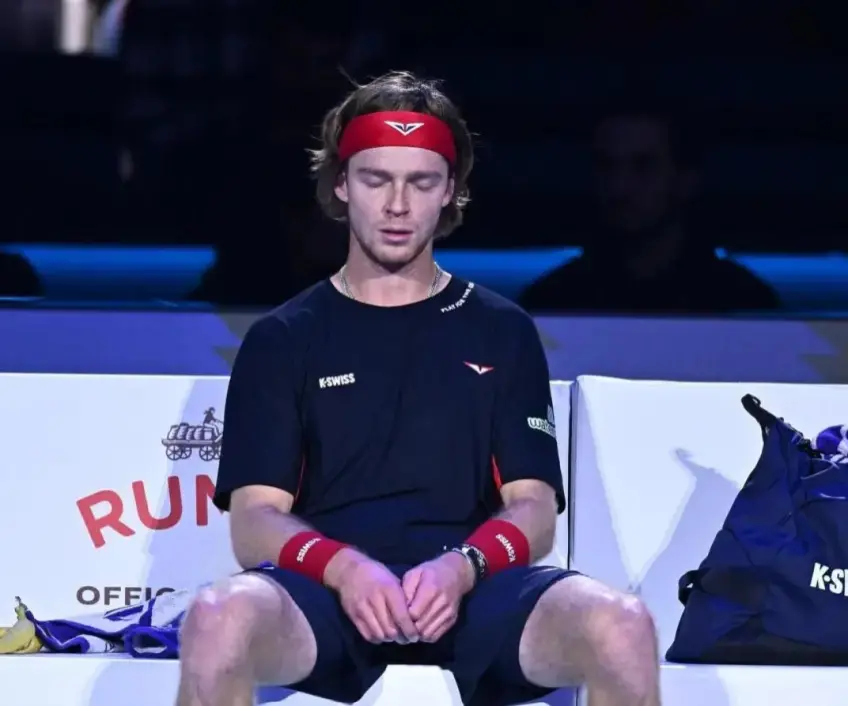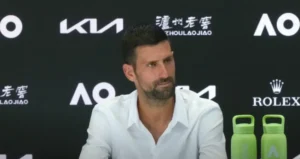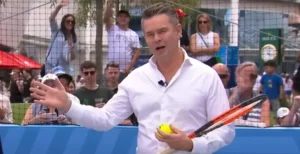Professional athletes often appear invincible, displaying extraordinary physical and mental strength in high-pressure situations. However, beneath the surface, they are human beings with emotions, vulnerabilities, and struggles. Andrey Rublev, one of the most talented tennis players of his generation, recently opened up about his battle with depression, shedding light on the mental health challenges that many athletes face. His story is a powerful reminder that success on the court does not equate to inner peace.
A Cry for Help
Throughout the last season, Rublev’s visible frustration on the court hinted at deeper struggles. His excessive reactions and self-inflicted harm, such as hitting his leg with his racket during the Paris Rolex Masters, raised concerns. While many perceived these actions as mere expressions of competitive frustration, they were, in reality, signs of an internal battle.
In a candid interview with The Guardian, Rublev revealed that after Wimbledon last year, he experienced the lowest point of his life. “It had nothing to do with tennis,” he admitted. “I couldn’t find a reason to live anymore. The thoughts in my head were killing me, creating a lot of anxiety. I couldn’t stand it anymore.” His words highlight the harsh reality of mental health struggles—even for those who seemingly have it all.
The Journey Toward Healing
Rublev initially turned to medication for depression but found it ineffective. Determined to take control of his mental health, he decided to stop taking pills and instead seek support from people who truly understood his situation. Russian tennis legend Marat Safin played a crucial role in helping him gain perspective. Additionally, working with a psychologist allowed him to understand himself better and develop coping mechanisms.
Even though he acknowledges that he is not yet where he wants to be, Rublev now feels a sense of stability. “Now I feel better,” he shared. “Even when I’m not in a good mood, I no longer feel that crazy anxiety of not knowing what to do with my life.” His journey highlights the importance of professional help and a strong support system in overcoming mental health struggles.
Success Doesn’t Guarantee Happiness
Rublev’s story also challenges the common misconception that achieving career milestones leads to happiness. “I won’t lie and say I don’t want to win a Slam. It’s my dream, and I’ll do everything I can to make it happen. But if I won a Slam, I don’t think my life would change. It wouldn’t make me happier or less happy,” he explained. This statement underscores the reality that external achievements cannot fix internal struggles.
A Message to the World
Rublev’s openness about his mental health is a step toward breaking the stigma surrounding athletes and mental well-being. His story serves as a crucial reminder that even the strongest competitors face battles we cannot see. By prioritizing mental health and seeking help, he sets an example for others struggling in silence. Ultimately, his journey reinforces the simple yet vital truth: athletes are human, too.






